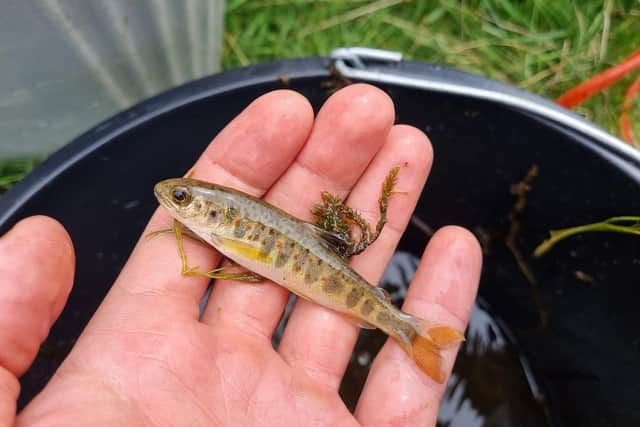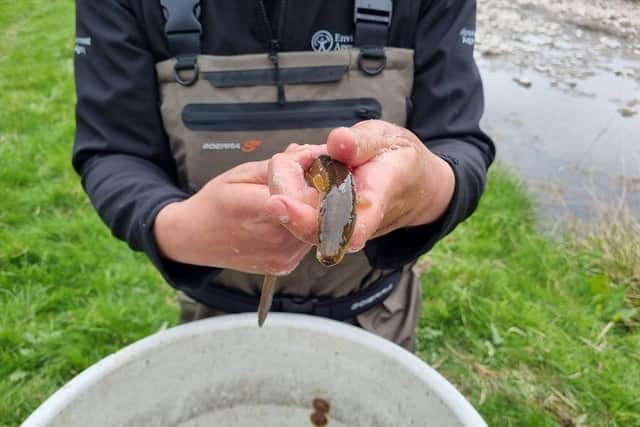More than 1,300 fish saved from suffocation after Northumberland river changes course
and live on Freeview channel 276
The natural phenomenon was caused by heavy rainfall and the fish risked suffocating if they were not returned to deeper water.
Thankfully, the Environment Agency was prepared for the emergency after recently receiving reports the river was likely to ‘avulse’ into the Barrow Burn at Alwinton.
Advertisement
Hide AdAdvertisement
Hide AdAn avulsion is a natural process which happens when a river diverts from an established channel into a new permanent course. The switch of the Coquet into the Barrow Burn left a 300-metre stretch of the main river depleted of water and around 1,300 fish stranded.


Environment Agency fisheries specialists therefore relocated fish in the cut off stretch – including salmon, lamprey, eel and minnow – back into the main river to ensure their survival. Some of the rescued fish were juvenile salmon and sea trout smolts on their migration to the sea, as well as younger fish of both species.
The Environment Agency worked on the rescue project with Natural England, local tenant farmers, and ecologists for the Defence Infrastructure Organisation, which provides ecological advice to the Ministry of Defence and which originally reported the issue to the Environment Agency. The MoD owns land in the area.
The Environment Agency’s Alastair Laverty, a geomorphology expert, said: “The River Coquet between Thropton and Alwinton is a dynamic, wandering river, which maintains good connection to its floodplain and is still largely unmodified - a rarity for a river of this size in England. The switching of channels and the creation of new channels within the floodplain is an entirely normal occurrence.
Advertisement
Hide AdAdvertisement
Hide Ad“Once we were aware of the potential for the river to move course, we began developing an incident response plan to reduce any impact on communities, the environment and wildlife, and as part of our response on the ground more than 1,000 fish were rescued.


“The River Coquet is a Site of Special Scientific Interest and we are committed to retaining and restoring this complex and dynamic river to ensure it remains a good habitat for wildlife.”
In March last year, a similar rescue effort was needed after the river set a new course through Caistron Lakes near Rothbury following heavy rain.